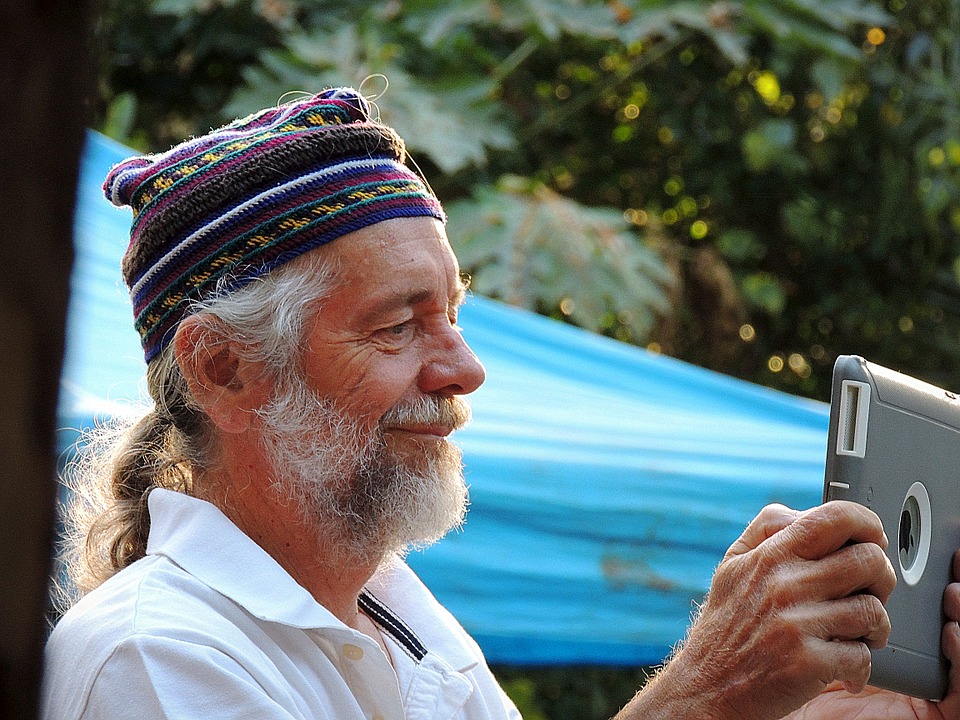Most are unaware that “age” is not included in the majority of American corporate and educational diversity, inclusion and equity strategies. As age affects all populations – we are either “old” or “future-old” – its exclusion is, at best, dissociative, and at worst, self-sabotaging.
~Ashton Applewhite, “Let’s End Ageism” TED Talk
How you can support the Senior Workforce Development Institute

It’s hardly a secret that, as Austin’s population has boomed within the last decade, so to has its job market become increasingly competitive. It’s difficult enough for college-degreed Millennials to find stable, gainful employment in a workforce oversaturated with BAs and PhDs, but for older job seekers, navigating a sea of tech-start ups and the “hipster” culture of New Austin offers its own set of exceptional challenges. As Christopher King, Past-Director of the Ray Marshall Center for the Study of Human Resources at UT Austin, bluntly puts it: “Austin is the hipster place. We put a premium on youth. If you’re an older worker and you lose a job, it’s really tough to get back in. The rapidly changing skills requirements of [technology] make it hard enough for engineers and other workers to re-enter the workforce…But an age bias against older workers, whether intentional or not, makes it even harder.”
In response to the employment crisis facing the 50+ age group – a crisis that, given the trend of Baby Boomers pushing back retirement thanks to skyrocketing housing and healthcare costs, isn’t likely to vanish anytime soon – for the last four years ACC has participated in Back To Work 50+: Women’s Economic Stability Initiative (BTW50+). This national initiative was made possible by a federal grant the college received from the Corporation for National & Community Services through the AARP Foundation: operating out of Highland Campus’ ACCelerator, BTW50+ has provided over 1,000 students in the 50+ age bracket with occupational, computer, IT, and digital job search training.
“When BTW50+ unfolded, it bore witness to the effects of the pace of technological innovation and disruption now affecting the workforce,” says Linda Smarzik, Dean of Computer Studies & Information Technology and grant lead for BTW50+. “This has brought to light the digital skills gap a large portion of the 50+ demographic faces as non-digital natives. When long-standing jobs go away overnight or workers return to the workforce after caregiving career gaps, training is of paramount importance in order to pivot and re-enter Austin’s highly competitive job market with updated credentials and/or new skill sets to re-enter.”
The Senior Workforce Development Institute (SWDI) is a proposed continuation and expansion of BTW50+ to better serve the needs of 50+ students. The first program of its kind in the nation, it would provide ongoing occupational skills training for in-demand jobs, computer literacy, IT and digital job search skills training, career support and relaunch programs, senior internships/apprenticeships, and a cross-mentoring platform where older Riverbats would mentor younger ACC students in life skills, business, finance, etc., and while younger students would mentor their older peers in digital and social media skills – an arrangement that would not only benefit both parties in terms of developing practical skills, but would also serve as an incredible community building tool.
Similar programs have seen success in countries such as China, where “elder-only” universities have become commonplace to serve a 50+ population in the hundreds of millions: according to The Economist, these “senior” schools currently have a student population of eight million, prompting plans to build such institutions in every Chinese county – creating and maintaining a senior population that is prepared for ongoing technological innovation in the workplace and actively involved in the social fabric.
Imagine the possibilities for the Central Texas region! If you would like to lend your support to this project, consider sharing your experiences and concerns with BTW50+ Director Ann Pamela Fant-Saez at ann.fant-saez@austincc.edu.
For information about Back To Work at 50+ workshops and resources, visit http://sites.austincc.edu/back-to-work-fifty-plus/
